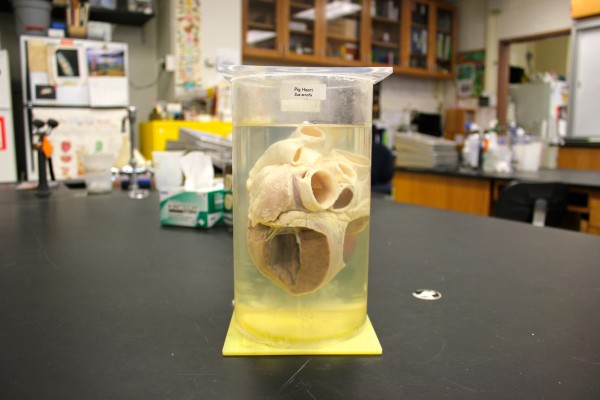The Government Needs to Start Treating Science as Essential
November 2, 2013

In his January 2009 Inaugural Address, President Barack Obama recognized the importance of science in today’s society and promised to “restore science to its rightful place.” One government shutdown later, many might argue that President Obama is doing the exact opposite: he is treating science as nonessential. Indeed, a majority of the government’s departments and institutions were closed or partially shut down, but they were not all treated equally.
As a student majoring in a science-related field, the government’s actions during these recent weeks worry me. A CNN report points out that most programs related to science had to partially cease their operations during the shutdown. Two of the United States’ main scientific institutions, the National Aeronautics and Space Administration (NASA) and the National Science Foundation (NSF), had to furlough 97 percent and 85 percent of personnel respectively. Although other non-scientific departments and institutions went through similar cuts, many remained largely open. For example, the National Archives and Records Administration (NARA) kept approximately 40 percent of its staff to “preserve and document vital government and historical records.” Likewise, the civilian military workers section of the Department of Justice—one of the largest public employers—was only reduced by 5 percent. It is true that some departments cannot be shut down entirely because our lives rely on them, but suspending scientists in such numbers shows just how unimportant science is in the minds of our politicians.
The few science positions that were left open are mostly related to security and accounting. While they guarantee that the institution runs well, they do not contribute directly to scientific developments. In addition to the shutdown, lack of funding also hinders the progress of experiment-based science institutions and departments. The Food and Drug Administration (FDA) and the National Institute of Health (NIH), for example, require constant testing and attention to determine how to keep the population safe. The shutdown of the NIH’s experiments required scientists to discard their examined mice. These animals are engineered and tested at high costs to help scientists understand diseases such as diabetes or Alzheimer’s. Replacing each mouse costs thousands of dollars; as the winner of the 2009 Nobel Prize for Physiology or Medicine, Carol Greider, said to NPR: “Not being able to breed mice for several weeks could really shut down years’ worth of experiments.”
Whether the shutdown was justified is another debate, but the greater toll it took on science is a shame, especially after the president had affirmed his support for science just a few years earlier. NASA, the NSF and the likes are among the country’s largest employers of graduates coming from science, technology, engineering and math majors. The recent shutdown and spending cuts only hurt scientific employment.
The brighter news is that the government is back up and running. However, it would be dangerous to forget what happened during the last couple of weeks. Science is widely considered to be the answer to this new millennium’s challenges, but the proper solutions will not be found if the government maintains this current attitude. Placing more importance on the sciences is vital so that we can further develop our knowledge and become better equipped to face tomorrow’s trials. Without a stronger commitment from the government, the future of publicly funded research and scientific fields—from sectors that require extensive preparation, such as space exploration, to those requiring continuous observations, such as drug testing or stem cell research—looks bleak.












